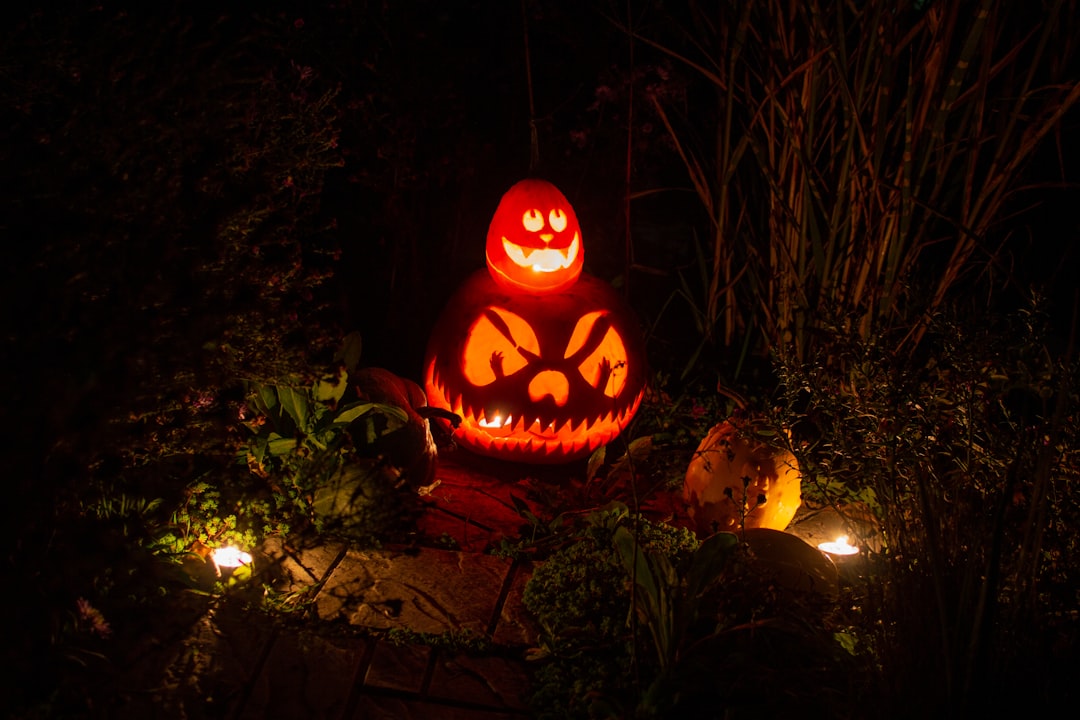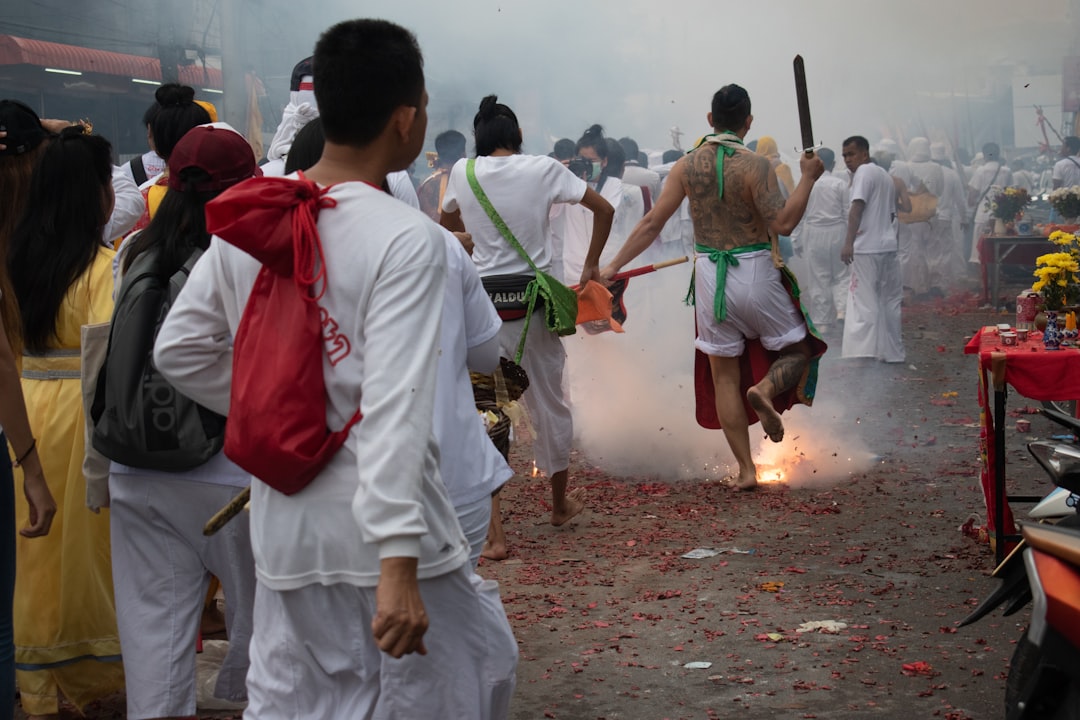As Halloween approaches, Christians around the world are faced with the question of whether or not to participate in this annual celebration. While some believers view it as a harmless tradition, others view it as an affront to their faith. In this blog post, we will explore the Christian perspective on Halloween, its biblical and cultural origins, the controversies surrounding it, and alternatives that Christians can consider. If you want to make an informed decision about how to approach Halloween as a Christian, read on.
Christian Beliefs and Halloween Celebrations

As a Christian, you may be wondering whether or not you should participate in Halloween celebrations. It’s a common question, especially since Halloween has pagan roots and is associated with spooky imagery and dark themes. But before we can answer that question, we should first examine what Christians believe and how it relates to Halloween.
-
Christians Believe in the Power of Light over Darkness
As Christians, we follow a God who is the embodiment of light and goodness. In John 1:5, it says, “The light shines in the darkness, and the darkness has not overcome it.” This means that no matter how bleak things may seem, God’s light prevails. While Halloween may have dark themes, Christians should remember that the light of God can shine through even the darkest of places. -
Christians Believe in Honoring God with Their Actions
In 1 Corinthians 10:31, it says, “So whether you eat or drink or whatever you do, do it all for the glory of God.” This means that Christians should be intentional about honoring God with their actions, even in the seemingly mundane things. If participating in Halloween celebrations goes against your religious beliefs and values, then it’s best to avoid it. -
Christians Believe in Practicing Spiritual Discernment
In 1 John 4:1, it says, “Dear friends, do not believe every spirit, but test the spirits to see whether they are from God, because many false prophets have gone out into the world.” This means that Christians should be discerning about the things they partake in and the messages they consume. While some Halloween traditions may have pagan origins or a focus on dark themes, not all of them do. It’s important to approach each situation with spiritual discernment and pray for guidance.
With these beliefs in mind, let’s explore what the Bible says about Halloween and its origins.
- Halloween does have pagan roots, originating from the ancient Celtic festival of Samhain which was celebrated on November 1st. The day before Samhain was known as All Saints’ Eve or Hallowe’en.
- While some Christians may feel uncomfortable with the pagan associations of Halloween, others see it as an opportunity to celebrate life in the face of death. Halloween can also be viewed as a harvest festival, celebrating the end of the harvest season.
- There are alternatives to traditional Halloween celebrations that Christians can partake in, such as hosting a fall festival or participating in a pumpkin carving contest. Churches may also offer faith-based activities for families on Halloween night.
- Some Christians also choose to dress up in costumes and go trick-or-treating, but with a focus on spreading light and positivity rather than promoting dark themes. Others prefer to avoid Halloween celebrations altogether.

Ultimately, whether or not Christians should participate in Halloween celebrations is a matter of personal conviction and spiritual discernment. As with any decision, it’s important to pray for guidance and consider how your actions can honor God.
Biblical Viewpoint on Halloween
As a Christian, it’s important to understand and evaluate the different celebrations that take place around us, especially when they carry controversial origins. Halloween is one such celebration that triggers a discussion about our religious beliefs and practices.
From a biblical viewpoint, Halloween is generally not encouraged for Christian celebrations because of its pagan origins. The festival originated from the ancient Celtic festival of Samhain, which was a celebration to mark the beginning of winter. The Celts believed that the veil between the living and the dead thinned on this day, allowing spirits to pass through. To ward off evil spirits, they lit bonfires and wore costumes.
While Halloween is not inherently evil or occult as some claim, some of its traditions hold negative cultural appropriation, which could be seen as promoting something that isn’t aligned with biblical values. Christians are encouraged to promote a positive message and not to celebrate something that promotes darkness or fear.
As Christians, we are called to “take every thought captive to obey Christ” (2 Corinthians 10:5). That means that we have to evaluate what we allow ourselves to indulge in, and whether it aligns with our belief and values. Though Halloween is regarded as a secular holiday, it is often accompanied by themes, symbols, and activities that carry negative connotations.
It’s vital to practice spiritual discernment during Halloween by avoiding practices that could lead us down the wrong path as Christians. This includes avoiding costumes and decorations that promote darkness, fear, or represent demonic symbols. As Christians, we are called to spread light, love, and hope, which is more in alignment with Godly values.
However, Halloween can also present evangelism opportunities and serve as a time to bring light into the darkness. Instead of shunning Halloween completely, some Christian communities choose to use it as an opportunity to connect with their neighbors and promote their faith. Churches can host harvest festivals or alternative events that have a more faith-based approach and provide a safe, wholesome environment for families to celebrate.
In conclusion, the Bible doesn’t explicitly condemn Christians from participating in Halloween festivities. Nonetheless, as believers in Christ, it’s important to consider our actions carefully and align them with biblical principles. While abstaining from Halloween might be the best option for some, Christians should use their faith to discern good from evil and not judge those who view Halloween as a light-hearted chance to enjoy costumes, trick-or-treating, and spooky stories in a way that honors God.
Exploring the Origins of Halloween
Halloween has become so popular that people from all walks of life participate in the celebrations, including non-Christians and Christians alike. However, many Christians wonder if it’s appropriate to celebrate Halloween, given its pagan roots. Exploring the origins of Halloween can provide some insight into why this is a valid concern.
-
History of Halloween
Halloween traces its roots back to the ancient Celtic festival of Samhain (pronounced “sah-win”), which was celebrated on the night of October 31. The Celts believed that the veil between the living and the dead was at its thinnest on this night, and the dead could cross over to the living world. They would light bonfires and wear costumes to ward off evil spirits. -
Christian Take on Halloween
While Halloween has pagan origins, many Christians believe that it has lost its religious significance and has become a secular holiday. However, others argue that Halloween has elements of witchcraft and paganism that are incompatible with Christianity. From a biblical viewpoint, it’s important to be mindful of what we participate in and to use caution in our choices. -
Paganism and Christianity
Some Christians feel that participating in Halloween is a form of cultural appropriation, as Christians are celebrating a holiday with pagan roots. Others argue that Christians can reclaim Halloween and use it as an opportunity to celebrate the victory of light over darkness. Jesus is the light of the world, and we can focus on spreading the light during Halloween. -
Alternative to Halloween Celebrations
If Christians feel uncomfortable participating in Halloween, there are alternatives for celebrating during this time of year. One popular alternative is hosting a harvest festival or fall festival, which focuses on the harvest season and God’s blessings. Another option is to participate in All Saints’ Eve, which is a Christian holiday celebrated on October 31 to remember deceased loved ones and martyrs.

In conclusion, exploring the origins of Halloween can help Christians make an informed decision about whether or not to participate in the festivities. It’s important to practice spiritual discernment and be mindful of what we are celebrating. With that said, Christians can use Halloween as an opportunity to spread light and godly values, as well as finding church alternatives to Halloween celebrations that align with their faith.
Alternatives to Halloween Celebrations for Christians
If you’re a Christian who is uncomfortable participating in Halloween celebrations, there are alternative options that allow you to still have fun without compromising your religious beliefs and values.
One alternative option is to celebrate All Saints’ Eve, also known as All Hallows’ Eve. This Christian holiday falls on the same day as Halloween but focuses on celebrating all saints and martyrs who have gone before us. It is a time for reflection, prayer, and gratitude for those who have lived righteous lives.
Another alternative to Halloween is to celebrate a harvest festival, which focuses on the bountiful blessings of the earth and the goodness of God. You can set up a fall-themed party with pumpkin carving, apple cider, and other harvest-themed activities.
As a community, you can also put together a faith-based event, such as a Christian concert, movie night, or game night. This gives people the opportunity to come together and enjoy each other’s company without feeling isolated or left out.
It’s also important to remember that Halloween is not the only time to practice evangelism. You can use the holiday season as an opportunity to spread light and love in your community. Consider hosting a fall festival and inviting your neighbors, or go door-to-door with gifts such as hot cocoa or baked goods.
« Exploring the Bible’s Teachings on Faithfulness
Unveiling the New Apostolic Reformation: Understanding Its Beliefs and Practices »
Lastly, if you do decide to participate in Halloween festivities, you can do so while still honoring God and your personal values. For example, you can refrain from dressing up in scary or demonic costumes and instead opt for something more lighthearted or positive. You can also decorate your home with harvest-themed decor rather than dark and haunting items.
In the end, it’s important to practice spiritual discernment and make decisions that feel right for you and your family. There is no right or wrong answer when it comes to how Christians should approach Halloween, but by exploring different alternative celebrations and honoring our faith and values, we can continue to spread love and light in our communities.
Halloween Controversies from a Christian Perspective
As Halloween approaches, there are always a number of controversies surrounding the holiday from a Christian perspective. While some Christians choose to participate in Halloween celebrations, others believe that it is not in line with their religious beliefs. Here are some of the most common controversies surrounding Halloween:
-
Pagan Origins – Many Christians believe that Halloween has pagan origins, stemming from the ancient Celtic holiday of Samhain. This holiday was said to be a time when the veil between the living and the dead was at its thinnest, and people would light bonfires and wear costumes to ward off evil spirits. Some Christians avoid Halloween because they believe it promotes pagan beliefs and practices.
-
Cultural Appropriation – Another issue with Halloween from a Christian perspective is cultural appropriation. Some costumes and decorations may be considered offensive or disrespectful to other cultures and religions. Christians who are sensitive to these issues may choose to avoid participating in Halloween altogether.
-
Demonic Symbolism – Some Christians view Halloween as promoting demonic symbolism and occult practices. They argue that the focus on ghosts, witches, and other spooky creatures is not in line with godly values and beliefs. These Christians may choose to focus their attention on more wholesome activities during Halloween, such as fall festivals and harvest celebrations.
-
Evangelism Opportunities – On the other hand, some Christians see Halloween as an opportunity to spread the light of Christ. They may engage in trick-or-treating or other Halloween activities as a way to connect with their community and share their faith with others. These Christians believe that Halloween can be a time to show love and kindness to others, even in the midst of controversy.

Regardless of your beliefs about Halloween, it is important to approach the holiday with spiritual discernment. If you do choose to participate in Halloween, consider how you can spread light and honor God in your celebrations. This may involve avoiding certain costumes or decorations, or finding alternative ways to celebrate that align with your religious beliefs.
Alternative activities for Christians during Halloween may include attending a church-sponsored harvest festival, hosting a family-friendly costume party that focuses on positive and uplifting messages, or engaging in faith-based activities such as prayer or Bible study. By focusing on the light rather than the darkness, Christians can transform Halloween into a time of spiritual growth and renewal, rather than controversy and division.
Practicing Spiritual Discernment during Halloween
As a Christian, it is essential to be aware of the spiritual warfare that takes place around us. While Halloween celebrations may seem harmless, there are underlying spiritual forces that we need to be mindful of. Therefore, it is crucial to practice spiritual discernment during this time.
One of the ways to exercise spiritual discernment is by being mindful of the costumes we wear. While dressing up in costumes is a tradition during Halloween, it is important to avoid anything that celebrates darkness or evil. Our costumes should reflect our godly values and beliefs. Instead, we can opt for costumes that promote positivity and honor God.
Another way to practice spiritual discernment during this time is by avoiding any association with occult practices, demonic symbolism or ghost stories. We should not be drawn into horror movies and other such activities that promote darkness and evil. Instead, we can celebrate All Saints’ Eve or the Harvest Festival, which have religious origins.

It is also important to be mindful of our actions and the environment we’re in during Halloween. Trick or treating is a popular activity during Halloween, but it is crucial to ensure that we do not engage in cultural appropriation or any other practices that do not align with our religious beliefs. Instead, we can look for alternative activities that our church community offers, such as faith-based gatherings and activities.
As Christians, one of our missions is to spread the light of Christ wherever we go. Halloween festivities provide us with opportunities to evangelize and share the love of God with those around us. We can do this by volunteering, giving out candies with positive messages, or hosting faith-based activities that promote light over darkness.
To conclude, it is important to exercise spiritual discernment during Halloween celebrations. We must be mindful of our actions, costumes, and environment. Instead of engaging in activities that promote darkness and evil, we can look for alternatives that celebrate our faith. By spreading the light of Christ during Halloween, we can make a positive impact on our communities.
Spreading Light during Halloween Festivities
As a Christian, Halloween can be a difficult time to navigate. The holiday has a history rooted in pagan practices and can leave some believers wondering if it’s appropriate to take part in the festivities. However, many Christians view Halloween as an opportunity to spread light and share their faith.
Here are some ways you can spread light during Halloween:
-
Host a Faith-Based Halloween Party: Halloween parties are filled with spooky decorations, but as a Christian, you can make it a faith-based celebration. Encourage your guests to come in costumes that represent biblical characters or themes. Incorporate games, activities, and treats that reflect your faith.
-
Skip the Dark and Eerie: Halloween decorations are often dark, eerie, and macabre. As a Christian, you can choose to decorate your house and yard with uplifting and positive messages. You can use pumpkins and fall-themed decorations rather than spooky or demonic symbols.
-
Trick-or-Treat with a Purpose: Trick-or-treating is a highlight of Halloween for many children. You can make it a meaningful experience by handing out faith-based tracts or treats with a positive message. Have conversations with the kids and their families, and use it as an opportunity to share your faith.
-
Host a Movie Night: Halloween is a popular time for scary movies and ghost stories. Instead of watching films with demonic or occult themes, host a movie night featuring Christian-themed movies or uplifting family-friendly films.
-
Volunteer at a Harvest Festival: Many churches host alternative events to Halloween, such as a harvest festival. By volunteering at these events, you can show support for your community while spreading the gospel. You can also invite your non-believing friends to attend with you.

In conclusion, Halloween can be a controversial topic for Christians, but it’s an opportunity to demonstrate our faith. By spreading light during festivities, we can honor God and make an impact in our communities. Be intentional about how you observe Halloween and use it as an opportunity to share your love for Jesus Christ.












